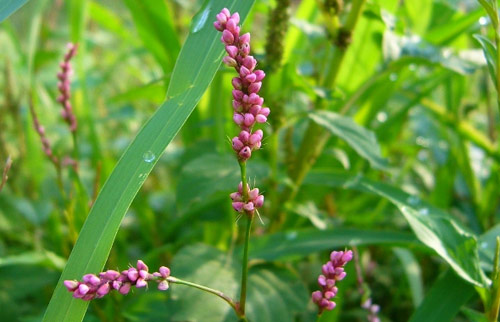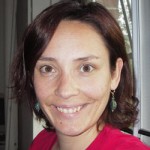Marie Curie Fellowship Winner Studies Non-Native Plant at Wesleyan

For the next two years, researcher Silvia Matesanz of Segovia, Spain will be collaborating with Chair and Professor of Biology Sonia Sultan in her plant evolutionary ecology lab at Wesleyan. Matesanz was awarded the prestigious Marie Curie International Post-doctoral Fellowship from the European Commission. Matesanz, Sultan and biology BA/MA student Timothy Horgan-Kobelski ’09 will be studying an introduced annual plant called Polygonum cespitosum that is becoming invasive in North America.
The scientists are particularly interested in understanding the evolutionary dynamics of the plant’s spread. Sultan and her research group will provide Matesanz with evolutionary expertise, which will enhance her previous Ph.D. training in plant ecophysiology, or the physiological responses of plants to the environment.
A successful non-native plant such as Polygonum cespitosum can displace native species from areas into which it spreads, altering the functional properties of the local ecosystem and reducing biodiversity. A species with this kind of impact is considered to be invasive. Sultan and Matesanz wish to determine what characteristics of this species allow it to thrive in novel environments. Polygonum cespitosum was introduced to the United States from Asia at the beginning of the 20th century and has only recently become invasive.

“Many plants and animals are introduced into new regions but only a very small proportion of these become invasive,” Sultan said. “People are interested to know what it is about certain species that allow them to spread so successfully.”
Sultan said that most biologists agree that “individual plasticity” or flexibility is a common property among invasive species. For example, “a certain seed might develop into a functioning shade plant in the shade and a sun plant in the sun.” Sultan’s lab has been studying how New England Polygonum plants are rapidly evolving greater developmental plasticity for different habitats.
Matesanz stated that she was looking forward to focusing on the evolutionary aspects of plants, because she hadn’t explored that avenue of research as much during her PhD program at the Center of Environmental Sciences in Madrid.
“One purpose of these fellowships is for young scientists trained in Europe to increase their expertise by taking on project that use different approaches,” Sultan said.

Matesanz added, “I wanted to broaden my breadth of discipline. I wanted to come to a very top-notch lab and start doing different things. And, also, improve my English language.”
Sultan explained that the collaborative project is interdisciplinary because it uses Matesanz’s “expertise in understanding plant physiology combined with my expertise in thinking about the evolutionary process. So she brings a strength that I don’t have and we give her a strength that she doesn’t have yet,” she said.
The joint research project will involve greenhouse experiments, field studies, and microsatellite genetic analyses. The scientists will try to determine how the plants are evolving in New England by testing how plants from local populations of Polygonum develop and function in different controlled environments. By growing inbred plants of various genetic lines in contrasting conditions, Sultan and Matesanz can examine how plants with a given genetic makeup can respond to different environments.
“[Polygonum cespitosum’s] typical habitat in New England, which is similar to their habitat in their native Asian region, is shady paths and forests and also along shaded roadsides. Yet, we’re beginning to see them in open sites. They seem to be increasing their ecological range,” Sultan said.
Sultan and Matesanz expect to learn more about how the plants are evolving to tolerate sunny environments. In addition they will use molecular markers that reveal genetic differences at specific DNA sequences to track the spread and differentiation of the species in New England.
The team aim to publish several papers about their experiments and attend the Ecological Society of America conference to present their results.
Matesanz’s work in Sultan’s lab is part of the two-year outgoing phase of her fellowship. For the third year of her fellowship, she will return to Spain to complete the project in collaboration with her former PhD advisor, Fernando Valladares, at the Terrestrial Ecology group in Spain’s Institute of Natural Resources in Madrid.
Sultan said that another advantage of the Marie Curie International Post-doctoral Fellowship is that it encourages collaboration between labs in other countries.

